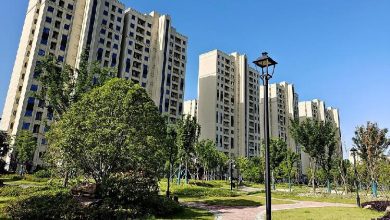China actively promotes investment and financing reform


Editor’s note: Ren Xiaomeng is associate researcher at the Research Center for Regional Coordinated Development, and vice dean of the China Academy of West Region Development, Zhejiang University. The article reflects the author’s opinions and not necessarily the views of CGTN. It has been translated from Chinese and edited for brevity and clarity.
In recent years, China has focused on improving the business environment through reform of investment and financing mechanisms, providing a favorable development environment for various types of enterprises operating and producing in China.
On one hand, local governments in China continued reform to lower the barriers to investment, constantly creating more room for effective investment.
For example, Jiangsu Province has set up a specialized industrial project database for the first time to facilitate private investment in 2024. This database includes 200 private investment projects with a planned investment of 64.8 billion yuan ($8.9 billion) this year.
Liaoning Province has made efforts to reduce barriers, relax market access standards for private investment, implement bid bonds, performance bonds, and quality guarantee bonds (insurance) to replace cash deposit in the field of government investment construction projects, and encourage tenderers to exempt bid bond requirements for private companies with good credit.
Through continuous reform and optimization of market system design, various regions in China have effectively reduced non-market investment barriers, creating new room for private investment.
<img src='https://news.cgtn.com/news/2024-07-17/China-actively-promotes-investment-and-financing-reform-1vj1DWIXHnq/img/83e967bd4668458b8c1cc2a66edd4895/83e967bd4668458b8c1cc2a66edd4895.jpeg' alt='A merchant stacking coins / CFP'
On the other hand, local governments in China have also continuously reduced the cost of effective investment through these reforms and optimization of financing mechanisms.
Sichuan Province has proposed optimizing the business environment with cost control at the core, emphasizing that the relevant policies issued are both a “task book” and a “blueprint.” The local government clearly proposed the comprehensive promotion of electronic guarantees (insurance) in bidding, promoting the comprehensive rate to be reduced to within 0.5 percent, and reducing the average financing guarantee fee rate for small and micro enterprises and rural development related enterprises to below one percent.
Jiangsu Province has also committed to give full play to the role of government financing institutions, with the proportion of financing guarantee for private enterprises generally reaching 80 percent.
Additionally, Hangzhou in Zhejiang Province proposed 32 specific measures to reduce costs for enterprises in ten aspects such as taxes, employment, energy use, land use, and financing. Through continuous reforms, the institutional transaction costs in the market have been effectively reduced, providing enterprises with a fair and effective investment and financing environment, and creating conditions for more beneficial investments.
Consequently, measures taken by local governments in China to lower investment barriers, optimize financial mechanisms, and reduce costs, have achieved good results.
From January to May 2024, private investment in Jiangsu grew by 7.1 percent year on year, which is 3.1 percentage points higher than the growth rate of fixed asset investment in the province. In the first quarter of this year, project investment in Sichuan’s private sector increased by 13.8 percent, 8.6 percentage points higher than the growth rate of fixed asset investment in the province. Private capital in Zhejiang has participated in the construction of a number of landmark projects, such as the Hangzhou-Shaoxing-Taizhou Railway, Hangzhou-Wenzhou Railway, Zhoushan Green Petrochemical Base, and San’ao Nuclear Power Station.
The effective reform measures of the investment and financing mechanism have provided important support for upgrading the business environment in various parts of China. The continuous expansion of effective investment will also continue to provide a “strong engine” for the high-quality development of the Chinese economy.





